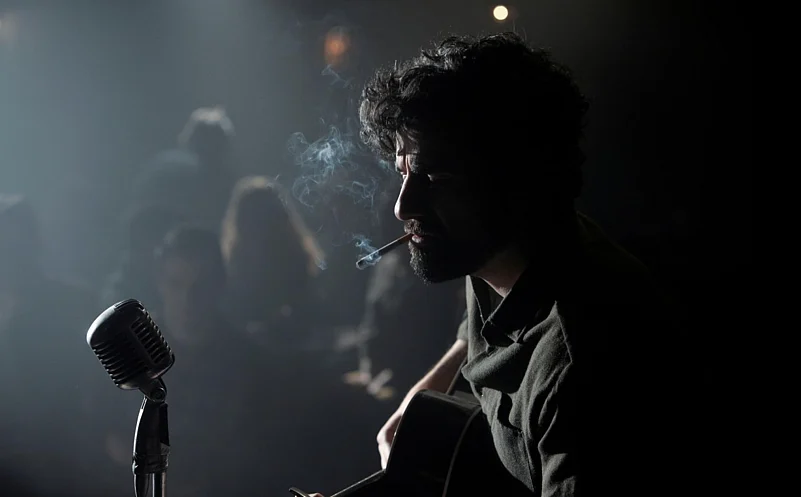The Cannes film festival has often been likened to world championships among film auteurs from across the planet. In a podcast with good friend and filmmaker Robert Rodriguez, director Quentin Tarantino [who became a worldwide phenomenon when Pulp Fiction (1994) picked up the top prize at Cannes] once described it as similar to the “tournaments where Bobby Fischer would play chess.” Despite its dazzling red carpet, garbled politics compared to the Berlinale or Venice, and some provocative press interactions, the festival has remained arguably prestigious through the decades.
A large part of its significance has to do with filmmakers still valuing recognition over here, especially with many cinematic geniuses vying for a spot in the line-up with their most eccentric, big-swing films. Whatever the end result, it won’t be wrong to say that Cannes has platformed some remarkably ambitious work conceived in the filmmaking world.
As the 78th edition of the festival ended last week, here is a list of ten films that spoke to us, which have emerged out of Cannes:
1. A Night of Knowing Nothing (2021)
Payal Kapadia’s docu-fiction—set against the backdrop of the 2015 Film and Television Institute of India protests—plays out with a voice-over conversation between two lovers, bemoaning the state of a nation they no longer recognise. Among the most astutely political films of the Modi era, Kapadia’s film also captures the idealism of campuses being browbeaten by a merciless system. Despite winning the L'Oeil d'Or (Best Documentary), the film remains unreleased in India till date.

2. Joyland (2022)
Saim Sadiq’s feature debut, about a suburban family in Lahore, is one of the best films to have emerged from the subcontinent in the last decade. Set around a man’s growing proximity with a transwoman—as he becomes her back-up dancer in a performance theatre—Sadiq’s film lays bare the oppressive patriarchy typical to South Asia. The film won the Queer Palm at the fest.

3. Inside Llewyn Davis (2013)
Joel and Ethan Coen’s paean to the striver shows a down-on-his-luck musician (Oscar Isaac) trying to keep his life in orbit, while balancing art and commerce. Used to seeing films about underdogs who succeed in the final act, what sets this film apart is its sheer indifference to its protagonist. Never has a film been colder and crueller to an artist. The film went on to win the Grand Prix that year.

4. The Zone of Interest (2023)
In the hands of a lesser filmmaker, the gimmick of this film would have been just that—a gimmick. But in the hands of Jonathan Glazer, this Grand Prix winner became an urgent, shocking indictment. By invisibilising the Jewish prisoners in the Nazi concentration camps, Glazer’s film showed us how easily we can dehumanise a sect, and how cruelty can seep into our most mundane choices.

5. Perfect Days (2023)
Palme d’Or winner and a darling of Cannes, Wim Wenders returned with his first feature film in six years, about a middle-aged Japanese man living in Tokyo, who cleans public toilets for a living. Wenders’ film, supposed to be a multi-part PSA series around Tokyo’s public toilets, became a staggering feature film, showing us the joy of the simple things. Hirayama (Kōji Yakusho)’s smile, each time he steps out of his house every morning, is one of the most uplifting things I’ve seen in a theatre recently.

6. Happy As Lazzaro (2018)
Alice Rohrwacher's film stands for the mournful beauty of unyielding goodness in a world that no longer recognizes or values it. It’s a story about how innocence is not only rare, but radically out of step with the modern world—and perhaps always has been. Rohrwacher won the ‘Best Screenplay’ for this film at Cannes.

7. All That Breathes (2022)
Shaunak Sen’s film on two brothers in North-East Delhi ‘mending’ kites (the bird) falling from the sky, is probably among the top five most visually stunning films to have come out of India in the last two decades. Following the footsteps of Payal Kapadia’s A Night of Knowing Nothing, Sen’s film also picked up the L'Oeil d'Or, merely a few weeks after Rintu Thomas and Sushmit Ghosh’s Writing with Fire (2021) earned an Oscar nomination for ‘Best Documentary’. The well-deserved global recognition that these films have received shines the spotlight brightly on India’s prolific non-fiction filmmakers and their craft.

8. The Seed of the Sacred Fig (2024)
Director Mahmoud Rasoulof pulled off a heist by making a film in the midst of the 2022 Iranian revolution—triggered by the custodial death of Mahsa Amini—filming in secret for almost 70 days in late 2023. During production, Rasoulof learned of his renewed prison sentence, forcing him to flee the country. The footage was smuggled to Hamburg, and the film became Germany’s entry for the Oscars, where it was nominated for Best International Film. A stinging film about how autocracy trickles down into a “normal” family, it won a Special Jury prize.

9. Close (2022)
Lukas Dhont's film captures the delicate nuances of childhood innocence and the harsh realities of societal judgment. The film also explores themes of masculinity, identity, and the consequences of suppressing emotional intimacy. Close won the Grand Prix.

10. Cold War (2018)
Pawel Pawlikowski's black-and-white epic follows the lives of a composer Wiktor (Tomasz Kot) and singer Zula (Joanna Kulig) in Poland, as a newly inducted part of the USSR. Spanning a couple of decades, the film follows the pair’s tragic love story—ending with the eerie lines “Let’s go to the other side, the view will be better there.” Years later, the film still sends shivers down the spine. Cold War won Pawlikowski the Best Director.

Happy watching!















